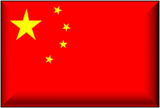West
East Corporation
中国的合作伙伴 : 投资中国,在中国做生意,在中国咨询,使中小型企业国际化
China's commitment in the reform of the yuan exchange rate regime
December, 2011During a press conference of the Chinese delegation to the G20 in France, the Director of the International Department at the Central Bank of China, Zhang Tao, reiterated China's commitment to increase the flexibility of the national currency.
Since the beginning of 2011, the People's Bank of China, the Chinese Central Bank, in accordance with the general provisions of the State Council, has taken the control of inflation as the main priority of the country's macroeconomic management. For this reason, the Institute has implemented a prudent monetary policy stance and used a mix of monetary instruments based both on quantity and price controls, such as macro-prudential tools. Crucial role played by the exchange rate regime.
“China has engaged in the reform of the Renminbi exchange rate regime, or Chinese yuan, and will continue in its efforts to further increase the flexibility of its currency”
Regarding this aspect, in particular the Dragon is committed to the reform of the Renminbi exchange rate regime, or Chinese yuan, with the aim to further increase the flexibility of its currency. In this direction, efforts made by China to boost domestic consumption. According to the Report of the People's Bank of China on Chinese monetary policy in the second quarter of 2011, in the first half of this year consumer demand has remained stable, investment in fixed capital are increasing rapidly, imports and exports are grown in a relatively buoyant, agricultural production has achieved good results, industrial companies have made a fairly satisfactory profitability and the income of households has risen. Nevertheless, the domestic inflation expectations remained about high growth, such as to ensure that the basis for price stability was not yet solid. This fact has necessitated the Central Bank's interventions, including precisely those ones on the exchange rate. The problem of the exchange rate of Chinese currency has long been one of the most frequent points of friction between Beijing and the other leading actors in the global economy. To get closer to the demands for reform advanced by the major Western economies, China has embarked on a gradual reform of RMB exchange rate, which is a transformation to a system of floating exchange rate, based on market demand, with reference to a range of currencies, and under the administrative control, thereby increasing the flexibility of the RMB to fluctuate according to market demand. The efforts in this direction was confirmed by the Chinese Delegation at the G20 summit in France and certainly appreciated by the participants in the financial summit, which in the scenario of the current crisis assign such maneuvers a role more important than ever.
关于我们
由于我们拥有专业人士和广泛的中国网,也叫作 " 关系 ",我们咨询公司能为打算投资中国的客户提供全方位的支持。而这(尤其是中小型企业)会使公司在中国做生意时的危险和失望减到最少。





